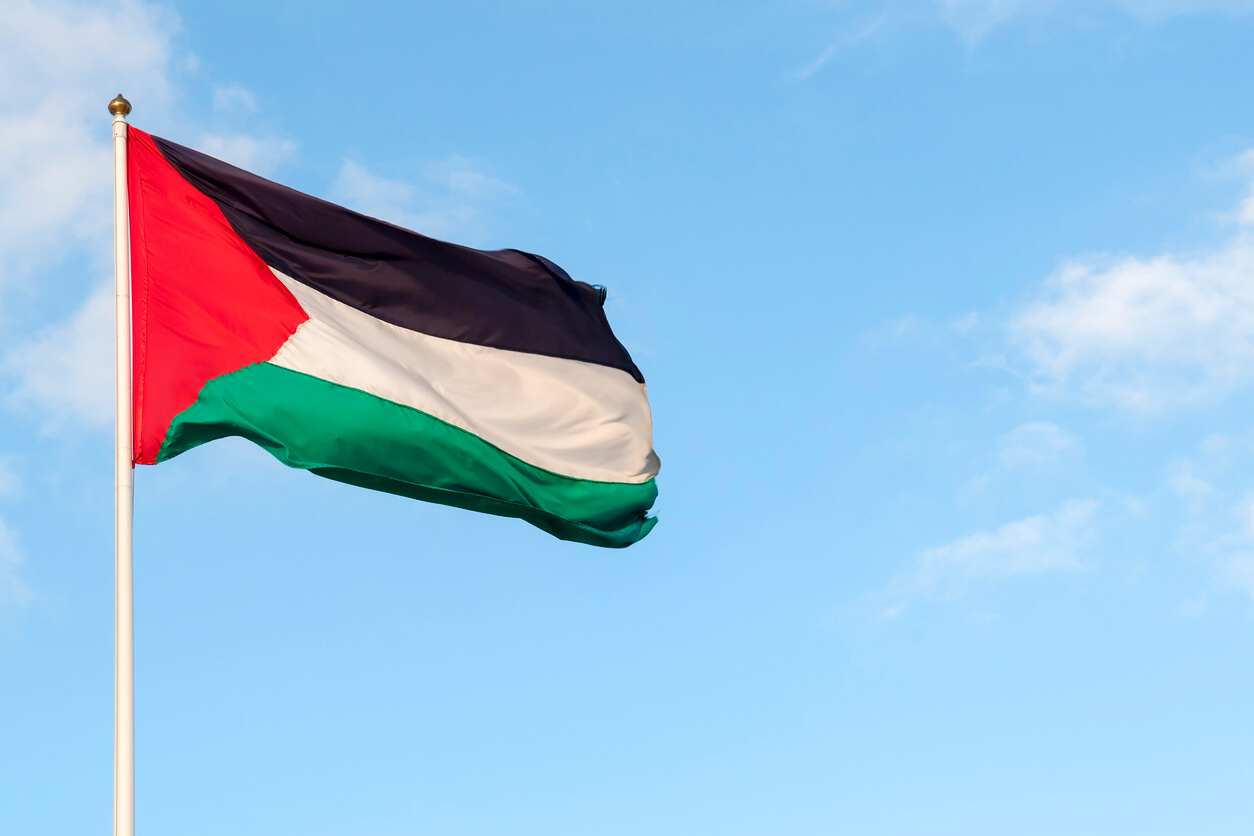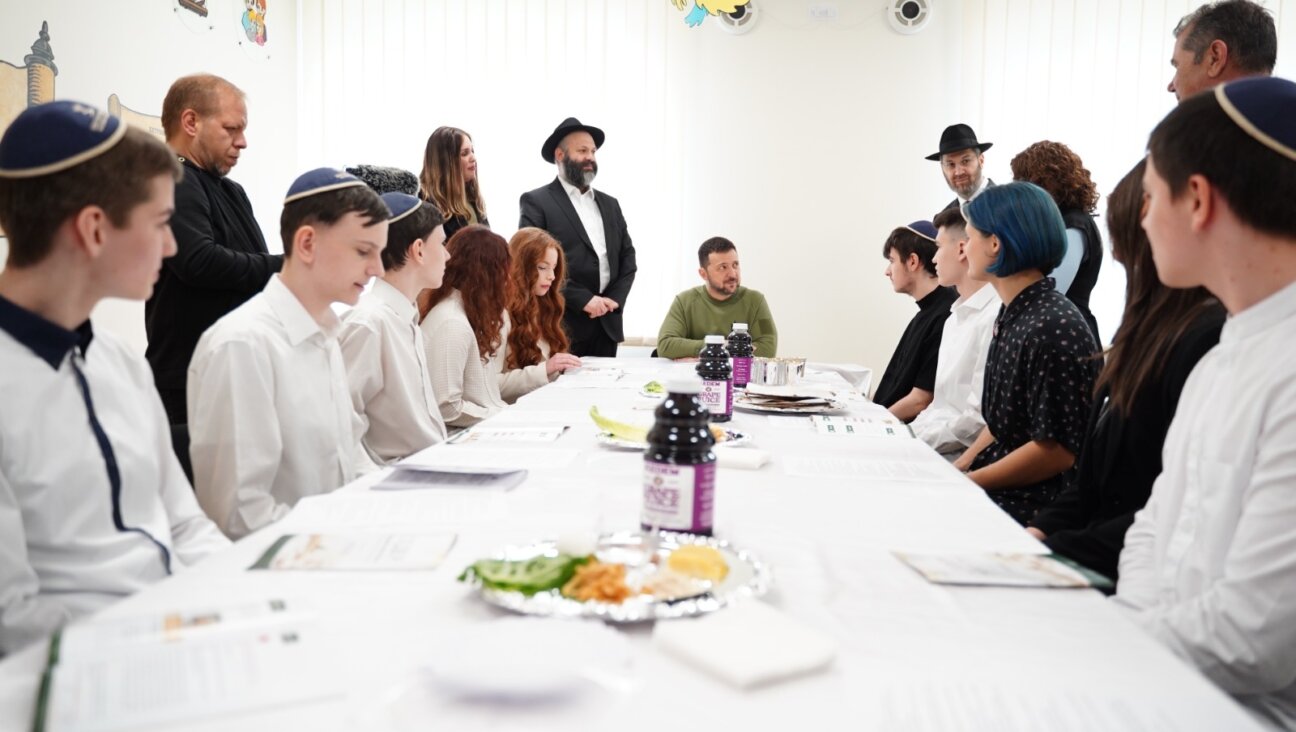Palestinian toddler hit by Israeli army fire dies of wounds

A Palestinian flag in the West Bank. (iStock)
This article originally appeared on Haaretz, and was reprinted here with permission. Sign up here to get Haaretz’s free Daily Brief newsletter delivered to your inbox.
Muhammad Tamimi, a two-and-a-half-year-old child who was wounded by IDF gunfire last week in the village of Nabi Saleh in the West Bank, died of his wounds on Monday.
In a statement, the Tamimi family said Muhammed died “as result of the crimes of the occupation,” and confirmed that his funeral procession will leave Ramallah on route to Nabi Saleh on Tuesday morning.
The Palestinian Ministry of Foreign Affairs issued on Monday a statement of condemnation following the death, stating “Israel’s responsibility for the killing of 28 Palestinian children since the beginning of the year.” The statement also called for an international investigation, and for the International Court of Justice to take steps against Israel.
In their statement, the PA office also called the Israeli investigation of the case as “irrelevant as its only goal is to whitewash, lie and protect the political and military ranks in the occupation state.”
The Israeli military acknowledged the incident, in which Muhammad and his father Haytam were shot, and wrote in a statement that “we regret the injury to noncombatants, and we work to prevent such incidents. The incident will be investigated.” The investigation is still underway.
According to the Israeli military, Haytam Tamimi and his son Muhammad were injured near the Israeli settlement of Neveh Tzuf, just north of Ramallah, when armed militants opened fire at the settlement and Israeli soldiers returned fire.
The father and son were brought to the entrance to the settlement for emergency medical treatment. The toddler, who was shot in the head, was evacuated in a military helicopter to Tel Hashomer Hospital in Ramat Gan.
The IDF statement added that, “according to our initial investigation, two terrorists opened fire for several minutes at the [settlement], an IDF force identified the source of the shooting and returned fire. It seems that, as a result of this, our forces hit two Palestinians.”
The incident occurred at about 8 P.M. on Thursday. According to a still-incomplete military investigation, two armed Palestinians fired at the direction of the Halamish settlement, which is adjacent to Nabi Saleh, for several minutes. The IDF attached a video to its statement announcing its initial findings, in which a man can be seen carrying a weapon, followed by what appear to be a muzzle flash.
According to the army, the gunfire came from a hill 600 meters (about 2,000 feet) frim the military pillbox. A soldier at a post beneath a pillbox was the one who shot at the father and son. According to that soldier, he fired four shots after mistakenly identifying the car as the one from which gunshots were fired at him. The IDF’s open-fire policy prohibits shooting at a vehicle unless it presents an immediate danger.
Speaking to Arabic media, the father said that he had been at the entrance to his home with his son. “We didn’t know that the army was operating [in the village]. We were about to go out – me, my son and my cousin – in my car. A bullet hit the car and us.” He added that they did not see what happened or who had fired at them.
Several other residents of Nabi Saleh who spoke to Haaretz corroborated Haytam’s account, saying that they did not hear any shots fired from the area of the family’s home.
Mohammed’s mother, Marwa, 31, spoke to Haaretz while outside her son’s hospital room, where he is fighting for his life. “Me, my husband and my son wanted to go visit family members. I was still inside the house, and my husband and son entered the car. Just as he turned the engine on he was shot,” she says.
Haytam was shot in the shoulder and hit in the chest by shrapnel. He underwent surgery in a Ramallah hospital and is currently in a medically induced coma.
“This was like an execution.” she added. “I want to file a complaint and for him and my son to be compensated. My husband is a man of peace, always at work or with the children.”
The Tamimi home is located about 300 meters (nearly 1,000 feet) from the military pillbox at the entrance of the village, but Tamimi believes that the soldiers were closer to them. She said that soldiers will often hide by the house’s gate, about 50 meters (164 feet) from the home itself. Over the years, she said, the house’s windows have been broken by live fire and stun grenades have been thrown into their yard. The military denied the claim that the shots were fired from the family’s gate.

I hope you appreciated this article. Before you go, I’d like to ask you to please support the Forward’s award-winning journalism this Passover.
In this age of misinformation, our work is needed like never before. We report on the news that matters most to American Jews, driven by truth, not ideology.
At a time when newsrooms are closing or cutting back, the Forward has removed its paywall. That means for the first time in our 126-year history, Forward journalism is free to everyone, everywhere. With an ongoing war, rising antisemitism, and a flood of disinformation that may affect the upcoming election, we believe that free and open access to Jewish journalism is imperative.
Readers like you make it all possible. Right now, we’re in the middle of our Passover Pledge Drive and we need 500 people to step up and make a gift to sustain our trustworthy, independent journalism.
Make a gift of any size and become a Forward member today. You’ll support our mission to tell the American Jewish story fully and fairly.
— Rachel Fishman Feddersen, Publisher and CEO
Join our mission to tell the Jewish story fully and fairly.
Our Goal: 500 gifts during our Passover Pledge Drive!























